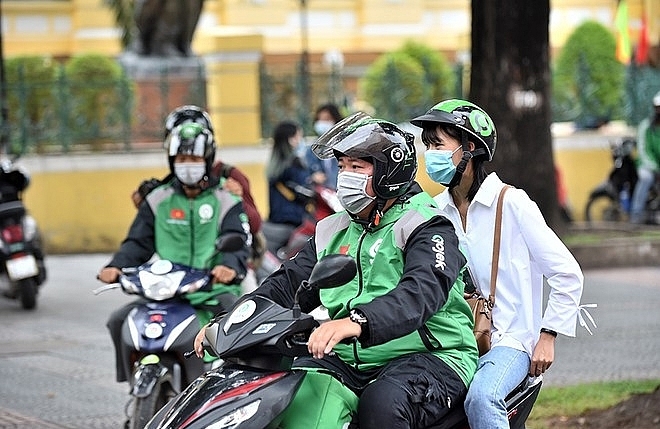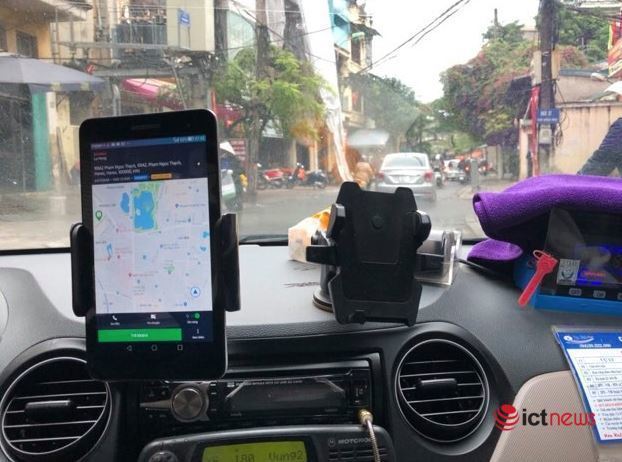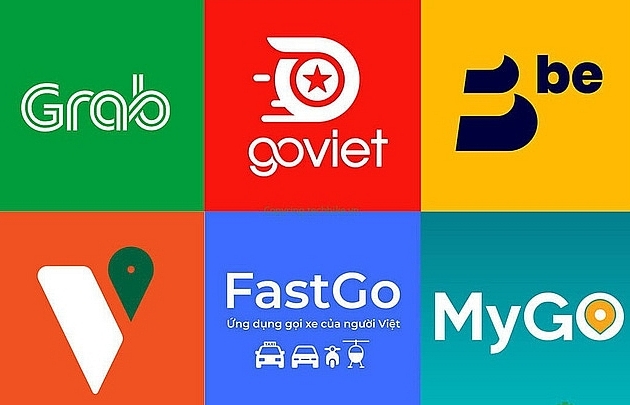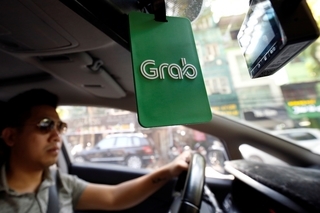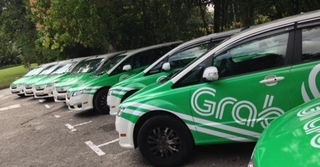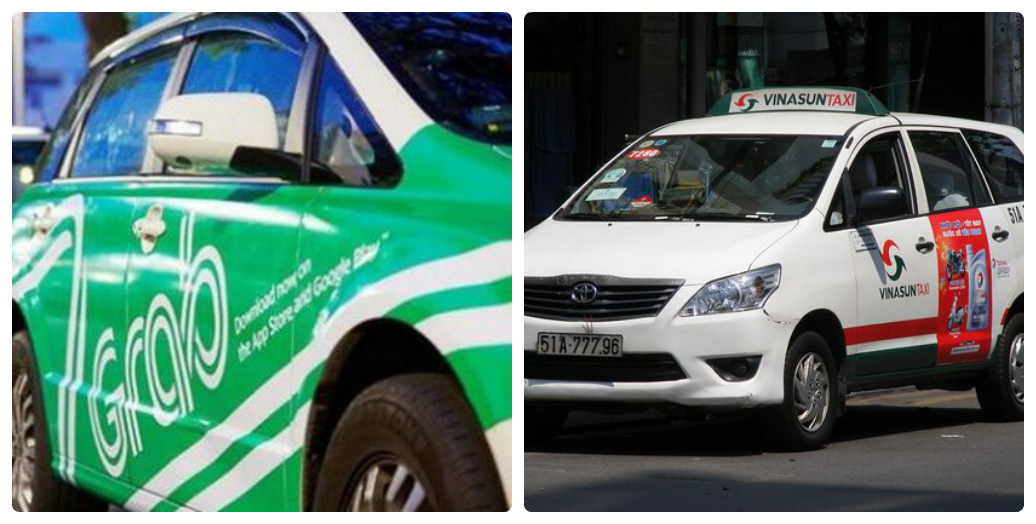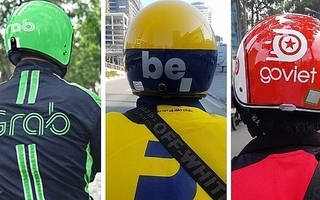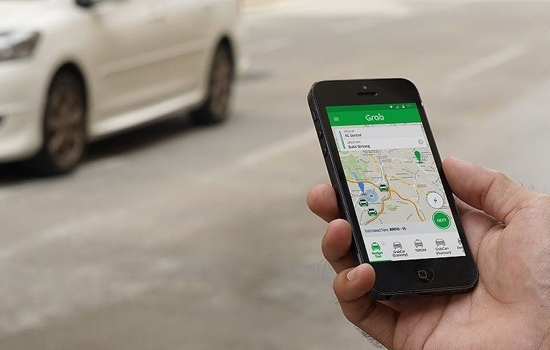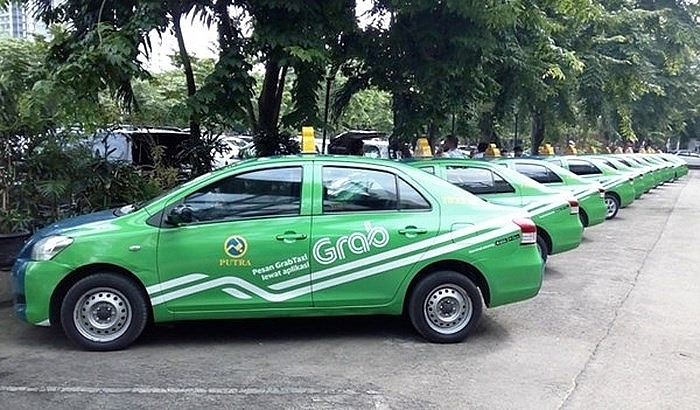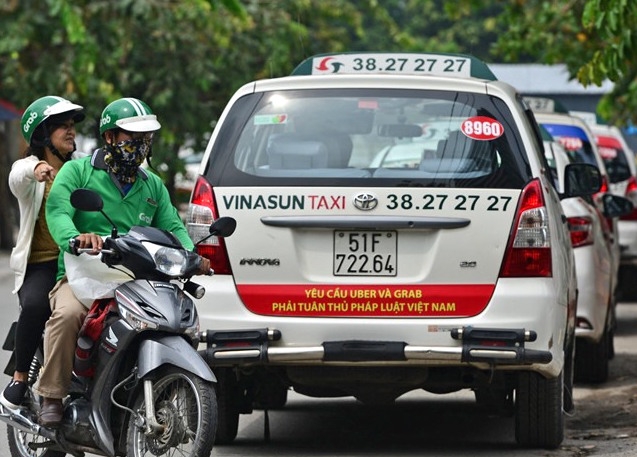- © Copyright of Vietnamnet Global.
- Tel: 024 3772 7988 Fax: (024) 37722734
- Email: [email protected]
ride-hailing
Update news ride-hailing
2020 – stormy year for ride-hailing app drivers
Ride-hailing drivers throughout the year 2020 were hit hard by the effects of the pandemic, which led to a sharp fall in clients at the beginning of the year, and by the new policy on required higher discount rate.
New tax policy for ride-hailing services sets off storm
Earlier this month the Government’s amendment of tax regulations for ride-hailing services, which increases the tax they actually pay, was a topic of hot debate in the media.
E-hailing drivers disillusioned as income falls
Ride-hailing drivers have seen their incomes fall dramatically because of policy changes.
Ride-hailing firms forced to complete tax mission
Vietnam is narrowing the gap in competition between ride-hailing businesses and traditional taxis by imposing 10 per cent VAT on the former.
Tax hike worries ride-hailing drivers, but their companies actually pay the tax
Under a new regulation, from December 5, ride-hailing services will be taxed 10 percent instead of the current 3 percent.
Traditional taxi firms lose ground as e-hailing taxi services boom
Mai Linh and Vinasun, the two big traditional taxi firms, are losing their positions in the market as they have found it difficult to compete with e-hailing taxi firms.
E-hailing apps rush to add payment apps to their services
E-hailing apps, after a period of focusing on their core business field of carrying passengers, have begun seeking other business opportunities, Thoi Bao Kinh Te Sai Gon reported. Most of them are offering an e-payment service.
Vehicles providing transport services will have yellow licence plates
All vehicles providing cargo and passenger transportation services must change from white licence plates to yellow ones with black letters and numbers from August 1, according to the Traffic Police Department under the Ministry of Public Security.
Queries around shareholders of FastGo and be
 After only two years of operation, the shareholder structures of both local ride-hailing platforms FastGo and be are now a mystery.
After only two years of operation, the shareholder structures of both local ride-hailing platforms FastGo and be are now a mystery.
Decree 10 legalises ride-hailing for benefit of passengers and drivers
 Vietnam has legalised ride-hailing, opening up opportunities for ride-hailing firms and bringing more benefits to passengers and driver-partners.
Vietnam has legalised ride-hailing, opening up opportunities for ride-hailing firms and bringing more benefits to passengers and driver-partners.
CEO of ride-hailing service Be resigns
 Tran Thanh Hai, CEO of the ride-hailing service Be, has stepped down after two years at the head of the service, which he joined in the beginning days.
Tran Thanh Hai, CEO of the ride-hailing service Be, has stepped down after two years at the head of the service, which he joined in the beginning days.
Changing licence plate colour leads to more consequences
 The MoPS has proposed to change the colour of the licence plates of ride-hailing vehicles, sparking concerns about increasing expenses, time and labour costs.
The MoPS has proposed to change the colour of the licence plates of ride-hailing vehicles, sparking concerns about increasing expenses, time and labour costs.
Rise of ride-hailing firms against traditional taxis is inevitable in Vietnam: PM
Such trend would help better meet transportation needs at more affordable prices, ensuring convenience, safety and improving service quality of both taxis and electronic-contract based vehicles, stated Prime Minister Nguyen Xuan Phuc.
MyGo lost in ride-hailing market?
 MyGo, Viettel Post’s app, will likely decide to focus its fleet on delivery services and drop ride-hailing.
MyGo, Viettel Post’s app, will likely decide to focus its fleet on delivery services and drop ride-hailing.
Grab to invest $500 mln in Vietnam in next five years
 Grab Holdings Inc. announced on August 28 that it will invest $500 million in Vietnam in the next five years to expand its services in the country.
Grab Holdings Inc. announced on August 28 that it will invest $500 million in Vietnam in the next five years to expand its services in the country.
Grab, Go-Viet, and Be: who is the stingiest?
 Bonus payments for ride-hailing drivers seem a lot less forthcoming now that the firms have gained a firmer foothold in Vietnam. Comparing Grab, Go-Viet, and newcomer Be, the Singaporean giant seems the most tight-fisted.
Bonus payments for ride-hailing drivers seem a lot less forthcoming now that the firms have gained a firmer foothold in Vietnam. Comparing Grab, Go-Viet, and newcomer Be, the Singaporean giant seems the most tight-fisted.
Viet Nam seeks to provide fair treatment to ride-hailing, traditional taxi firms
 The Ministry of Finance makes a careful study of tax laws to collect taxes from electronic contract-based vehicles to avoid evasion and ensure a level playing field for ride-hailing and traditional taxi firms.
The Ministry of Finance makes a careful study of tax laws to collect taxes from electronic contract-based vehicles to avoid evasion and ensure a level playing field for ride-hailing and traditional taxi firms.
Should ride-hailing vehicles install taxi signs?
 Vietnam’s proposal requesting all ride-hailing vehicles to put taxi signs on vehicles will weigh down disruptive businesses and dampen benefits to stakeholders.
Vietnam’s proposal requesting all ride-hailing vehicles to put taxi signs on vehicles will weigh down disruptive businesses and dampen benefits to stakeholders.
VN Competition and Consumer Protection Authority submits complaint about Grab-Uber ruling
 The Vietnam Competition and Consumer Protection Authority (VCA) submitted a complaint about the decision of the Vietnam Competition Authority that Grab's acquisition of Uber does not violate the Competition Law.
The Vietnam Competition and Consumer Protection Authority (VCA) submitted a complaint about the decision of the Vietnam Competition Authority that Grab's acquisition of Uber does not violate the Competition Law.
Regulating ride-hailing firms: Do not dampen the development
 As competition is uneven among ride-hailing firms and traditional taxi companies, there is heated debate about how to better regulate new business models.
As competition is uneven among ride-hailing firms and traditional taxi companies, there is heated debate about how to better regulate new business models.



